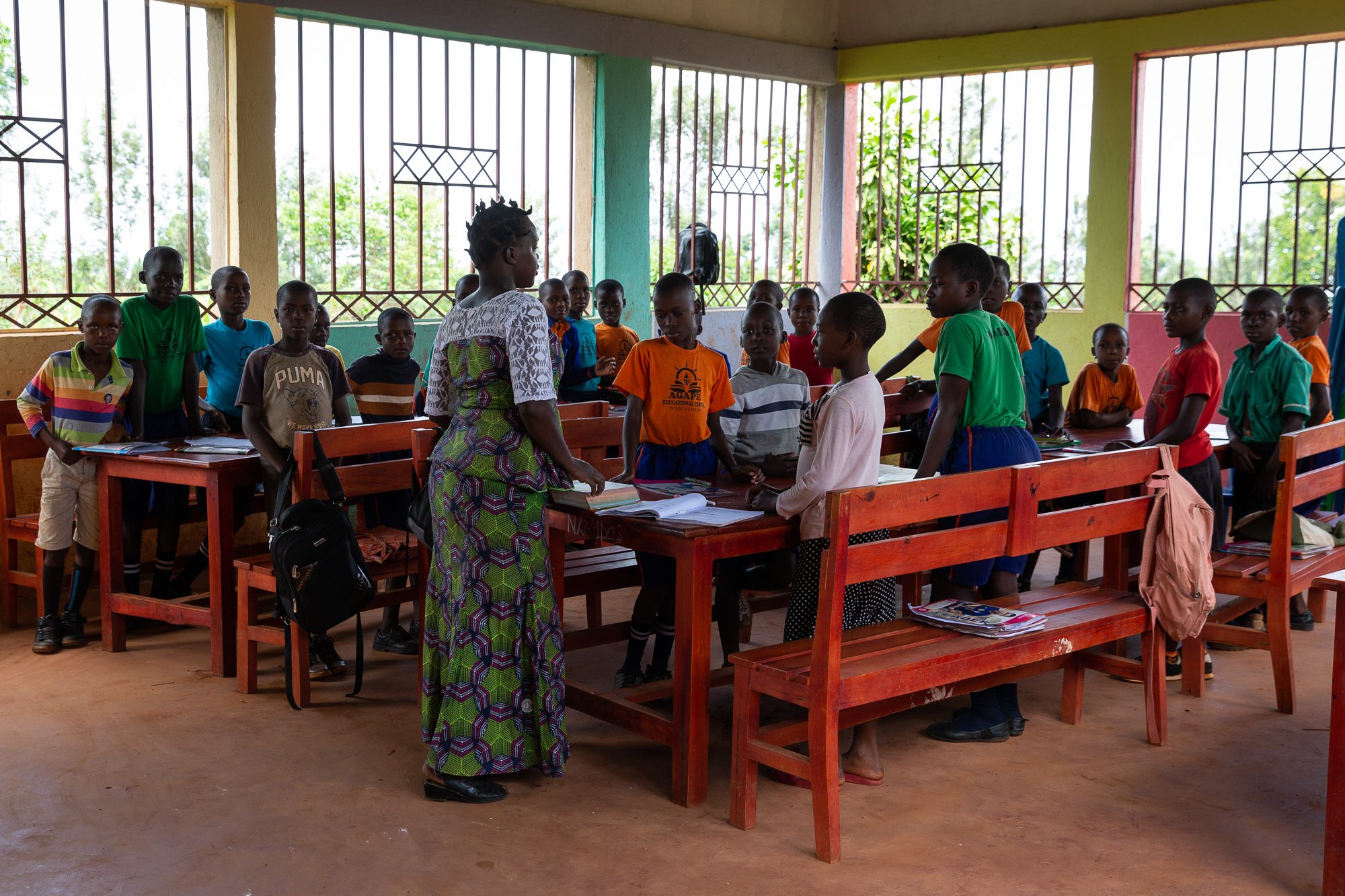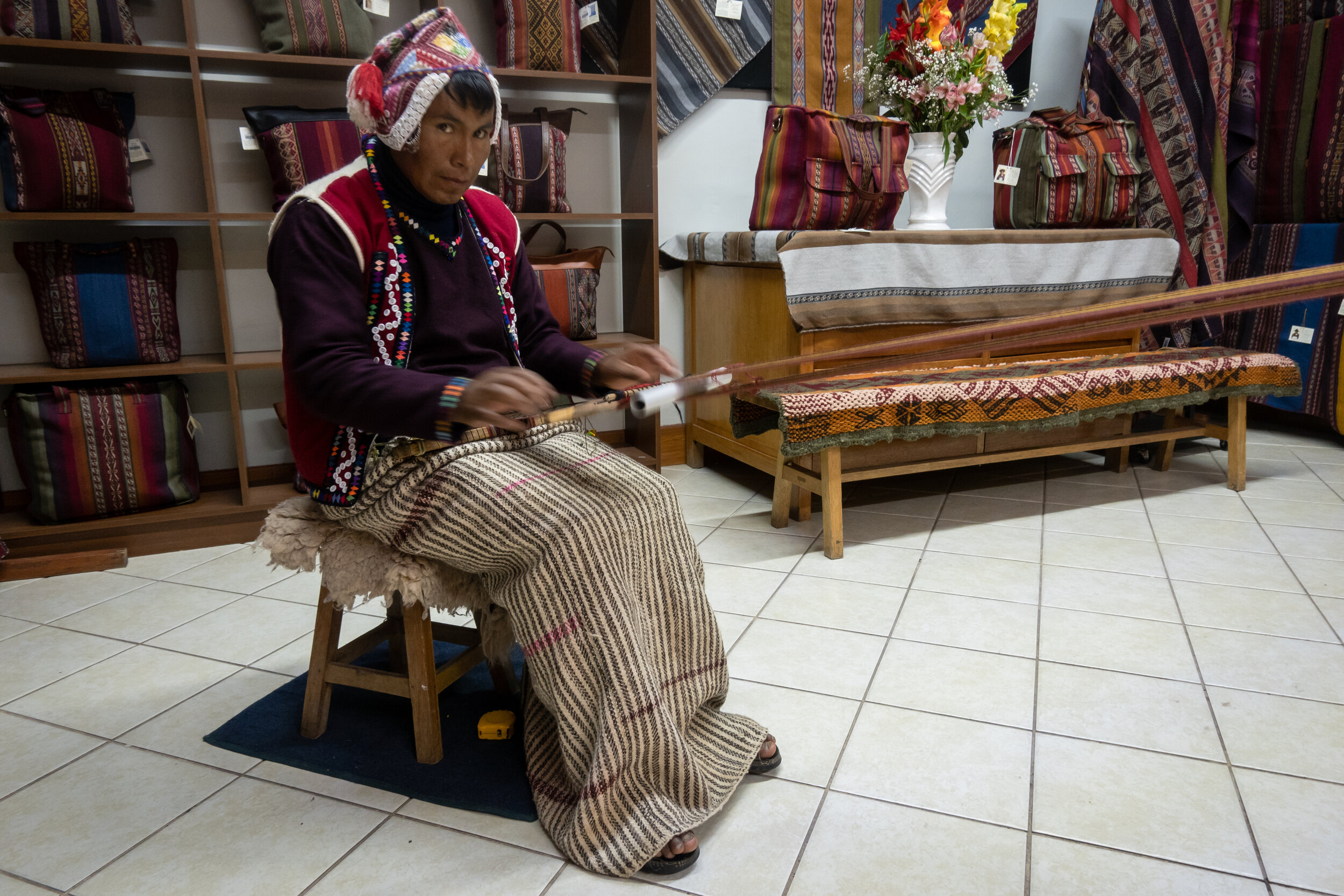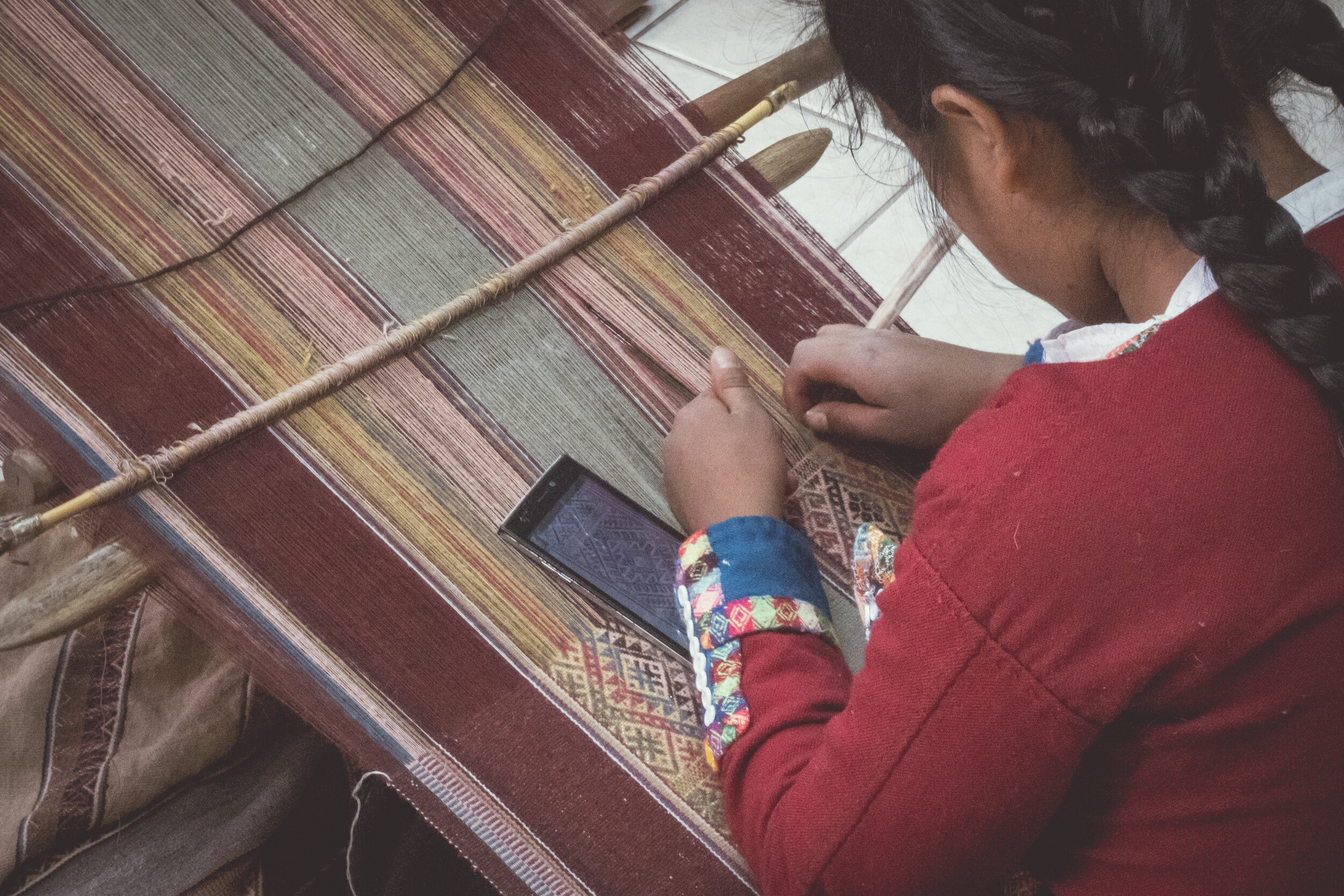In June, I went to Jinga, Uganda on assignment for Photographers Without Borders to document the work of a local, grassroots organization, Poverty Eradication Mission Uganda (PEMU). There I met Kiirya Brian Waiswa, a young man who has dedicated his life to addressing poverty in his village, located just outside of Jinja along the shores of Lake Victoria.
Brian poses by the sign for the educational center he opened in February 2023 to provide free education to the children in his care.
Based out of the small village of Musoli in the Mayuge District of Uganda, PEMU’s primary mission is to empower and elevate women and girls in Uganda through access, advocacy, empowerment and working with other developmental actors. Brian himself is close to his community, having been born and raised in Musoli by his grandmother, after losing both of his parents. It was from his grandmother’s struggles with poverty, and the additional barriers she faced due to her gender, that he developed a strong desire to help vulnerable women and girls.
Brian’s primary project at present is the Agape Children’s Home and Educational Center, and the 107 children under his care. This is where much of my assignment took place. The Agape Children’s home opened in August of 2022, a years-long project that finally came to fruition. Previously, the children lived with foster families within the community, supported by PEMU.
In February of this year, the Educational Center opened, which allowed Brian to provide education to the children, eliminating the costs associated to sending them to school locally. Despite the intent of the Ugandan government to provide free primary education to all children, there are still costs that many families cannot afford including school fees, uniforms, and supplies. This disproportionately affects girls, whose school attendance tends to be lower than boys.
Brian has a clear vision for the future of his organization and community. There is constant need and he has plans to continue developing the property, which will enable him to accommodate more children, including local children who aren’t currently in school. There are structures that need completing (currently the kitchen is without a roof) and space on the property to add new ones. To expand is also to invest in an electricity source, acquire a consistent source of school supplies, provide uniforms, and the list goes on.
Like many, Brian and PEMU were deeply impacted by the COVID-19 pandemic. Skills programs benefiting local women and other community-based activities were put on pause and have yet to resume, something that Brian is hoping will change soon. The vision is to provide women with skills and start-up capital that will generate enough income for their families and allow them to break away from the local industries, thereby permitting their children to attend school. A vocational program also creates an option for graduates of the Agape Educational Centre to learn skills for a better future.
Despite the many challenges Brian faces, he remains undeterred in his mission. With all he wants to accomplish, Brian hopes to secure additional and more consistent funding. A fundraiser in support of PEMU and the children is currently underway, with a goal of raising $2,000. If you’d like to contribute to a valuable cause, and make an impact on the lives of young Ugandan’s, please visit Support Poverty Eradication Mission Uganda












